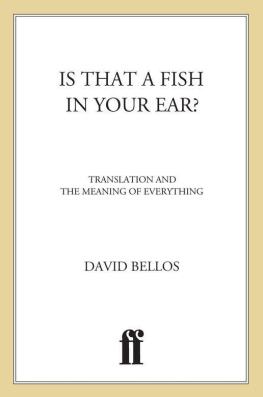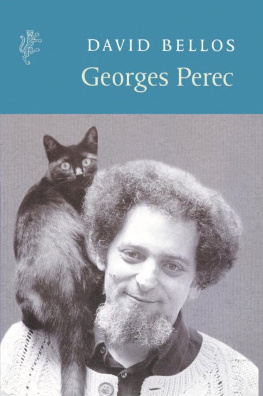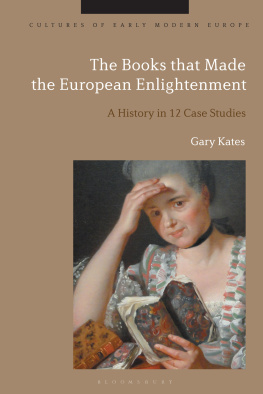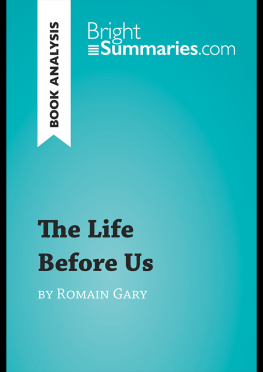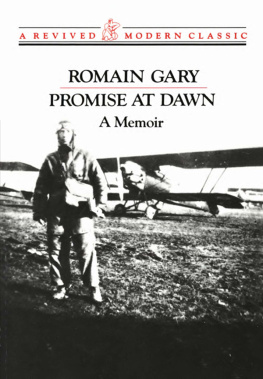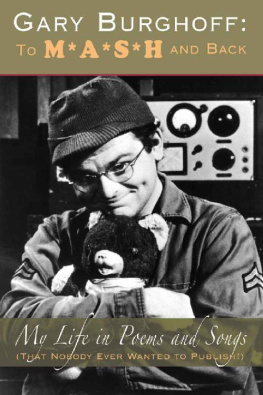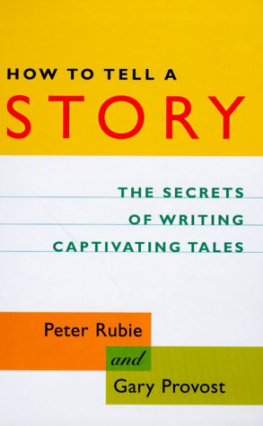Contents
About the Book
Airman, war hero, immigrant, law student, diplomat, novelist and celebrity spouse, Romain Gary had several lives thrust upon him by the history of the twentieth century, but he also aspired to lead many more. He wrote more than two dozen books and a score of short stories under several different names in two languages, English and French, neither of which was his mother tongue. Gary had a gift for narrative that endeared him to ordinary readers, but won him little respect among critics far more intellectual than he could ever be. His varied and entertaining writing career tells a different story about the making of modern literary culture from the one we are accustomed to hearing.
Born Roman Kacew in Vilna (now Lithuania) in 1914 and raised by only his mother after his father left them, Gary rose to become French Consul General in Los Angeles and the only man ever to win the Goncourt Prize twice.
This biography follows the many threads that lead from Garys wartime adventures and early literary career to his years in Hollywood and his marriage to the actress Jean Seberg. It illuminates his works in all their incarnations, and culminates in the tale of his most brilliant deception: the fabrication of a complex identity for his most successful nom de plume, mile Ajar.
In his new portrait of Gary, David Bellos brings biographical research together with literary and cultural analysis to make sense of the many lives of Romain Gary a hero fit for our times, as well as his own.
Also by David Bellos
Balzac Criticism in France, 18501900:
The Making of a Reputation
Georges Perec:
A Life in Words
Jacques Tati:
His Life and Art
List of Illustrations
The Writer. Paris, 1975
Le Roi des dupes
A Boston bomber of the Lorraine Squadron
The Airman. London, 1943
The Hero. London, 1945
The flag of the Free Polish Air Force, 1943
The Consul General. Los Angeles, 1958
The Immigrant. Nice, around 1930
Jean Seberg and Romain Gary in Route de Corinthe
The Mogul. Cimarrn, around 1975
Plucking the Jew. Warsaw, September 1939
Father and Son. Rue du Bac, 1979
Abbreviations
AEF | Afrique quatoriale franaise French Equatorial Africa |
AK | Armia Krajowa Home Army (Poland) |
CP | Communist Party |
FAFL | Forces ariennes de la France Libre Free French Air Force |
FF | Fatherland Front (Bulgaria) |
GI | General infantryman |
IUPN | International Union for the Protection of Nature |
NCO | Non-commissioned officer |
NKVD | Narodny Komissariat Vnutrennikh Del Peoples Commissariat for Internal Affairs (Soviet secret police) |
NYT | New York Times |
OAS | Organisation de larme secrte Secret Army Organisation (Algeria) |
OPEC | Organisation of Petroleum-Exporting Countries |
PCF | Parti communiste franais French Communist Party |
RPF | Rassemblement du peuple franais (French political party) |
SS | Schutzstaffel |
STD | Sexually transmitted disease |
UDR | Union de dmocrates pour la Ve Rpublique (French political party) |
UNR | Union pour la Rpublique (French political party) |
UNRRA | United Nations Relief and Rehabilitation Administration |
An Introduction to Romain Gary
Born Roman Kacew in Vilna (Russia) in 1914, the individual later known as Romain Gary led an extraordinary multiplicity of lives. An immigrant to France at the age of fourteen, he was educated in Nice and studied law at Aix-en-Provence; after two penniless years in Paris, he did his military service in the French Air Force, but fled to Britain when France signed the Armistice in 1940. He served for the duration of the war in the Free French squadron of the RAF and was awarded high military honours for bravery. In 1945 he joined the Diplomatic Corps and rose to become French Consul General in Los Angeles, resigning his post in 1960 to live with and then to marry Jean Seberg, the star of Godards Breathless. In his early fifties, with a handsome flat in the smarter part of the Latin Quarter in Paris, a hideaway in Geneva and a millionaires retreat in the Balearic Islands, Gary could have considered himself an uncommonly lucky man with a vita to die for (a summary is given in ).
But none of the above even hints at the reason why Gary continues to fascinate us now. From his teens until his last days, Romain Gary was a prolific and talented writer, producing more than twenty novels and volumes of memoirs that have never been out of print in France. Even more fascinating: he wrote some of his books under assumed names (Romain Gary being only the first of the names he adopted over the course of his life) and by inventing a character to go with the name he hoodwinked the entire literary establishment into believing he was someone else. In a manner equally unprecedented and strange, he wrote a good part of his oeuvre not in French but in English, a language he did not acquire until he was thirty years of age, as his sixth mother tongue.
With a life so varied and exciting, Gary could have simply told stories about himself Litwak, immigrant, airman, diplomat, Don Juan, novelist and globe-trotting celebrity spouse. He did indeed write several memoirs, including a celebrated and infinitely seductive portrait of his early life, Promise at Dawn. But as we shall soon see, that charmingly unreliable narrative is best read like a novel or, rather, like a novel by Gary, in which characters and plots are the fruit not of recollection, but invention.
In November 1945, impressed and moved by Garys first novel, A European Education, Jean-Paul Sartre, then at the height of celebrity, arranged to meet the young writer at La Rhumerie, a caf on Boulevard Saint-Germain. Gary, still somewhat flummoxed by the literary prize he had just been awarded, and bewildered by current buzz-words like existential and absurd, gave Sartre the main features of his life to date from Russia to Poland, Nice, Britain, West Africa, Syria, then England again, ending with his Legion of Honour and his literary prize. Sartre listened, then turned to Simone de Beauvoir, who was sitting beside him, and said: Quelle mine dexprience! (literally: What a goldmine!). Implicitly: I wish I had such a story to tell! This young man will be able to turn his life into a heap of novels! Sartres admiring exclamation is perfectly comprehensible, but even at that early stage of his career, Gary took great exception to it. Long after, he still felt angry about Sartres attitude to literature, to life and to him. At an academic dinner party at Yale University, around 1957, he entertained his hosts with a tall story about how Sartre had confided to him that, as a writer, he regretted not having been arrested and tortured by the Gestapo
Next page

